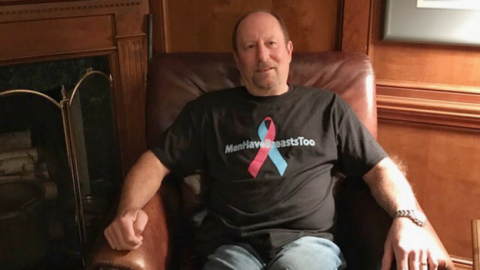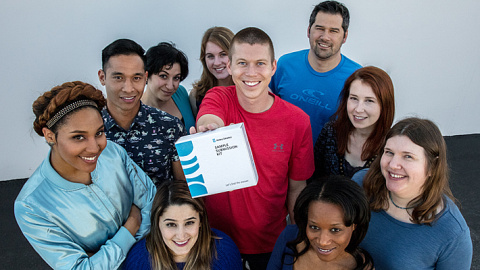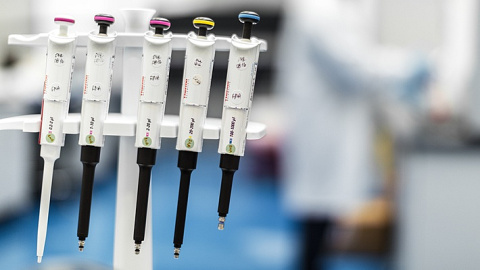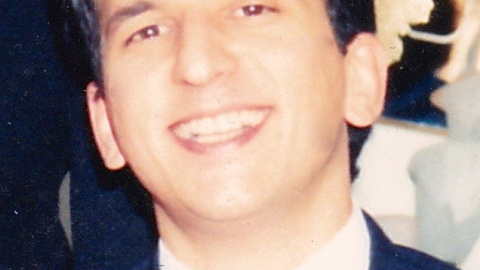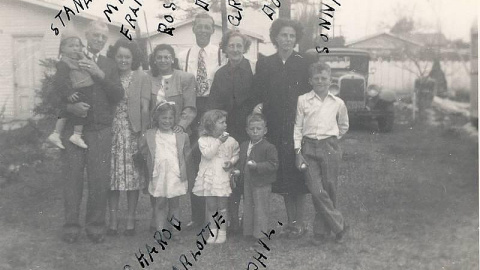- By Bill Rotter
- Posted March 16, 2017
Why I Liquidated my Business to Advocate for Male Breast Cancer Awareness
Several years prior to my breast cancer diagnosis, I started to think about the right time to liquidate my business and sell the real estate. At the time, my brother and I owned two Ace hardware stores in the Milwaukee area with approximately 100,000-sq. ft. of retail space, warehouse and offices. I knew it would be a physically daunting undertaking…
- By Jackie Connor
- Posted March 14, 2017
Four Reasons Why Genetic Testing Matters to the Individual with Colorectal Cancer
Colon cancer is the third most common cancer diagnosed in both men and women in the United States, and more than 95,000 new cases of colon cancer and 39,000 new cases of rectal cancer are estimated for 2017, according to the American Cancer Society. Up to 10% of colorectal cancer is hereditary, or caused by inherited gene mutations. Hereditary…
- By Selvi Palaniappan, MS, CGC
- Posted March 9, 2017
Individual Genetic Test Results Lead to Individual Considerations
As a genetic counselor specializing in cancer genetics, I’m happy to be contributing to the Ambry patient blog during National Colorectal Cancer Awareness Month. Colorectal cancer can happen by chance, but it can also be inherited. Your doctor or genetic counselor can evaluate your family history to determine if you should consider genetic testing…
- By Jackie Connor
- Posted March 2, 2017
RNA Labs—How they Impact the Medical World
Ribonucleic Acid, otherwise known as RNA, is the messenger that carries instructions for controlling the synthesis of proteins from Deoxyribonucleic Acid (DNA). The central dogma of molecular biology states that “DNA makes RNA makes protein." However, for the proteins, which are the final product, to work properly, the RNA needs to be “edited,"…
- By Georgia Hurst
- Posted March 2, 2017
March is Colorectal Cancer Awareness Month- Do you Know About Lynch Syndrome?
In honor of Colorectal Cancer Awareness Month, I would like to discuss the most common cause of hereditary colorectal and uterine cancer – Lynch syndrome. In fact, this post is dedicated to my brother Jimmy, who died of colon cancer due to Lynch syndrome at the age of 36. Lynch syndrome is a hereditary cancer condition passed down in families…
- By Jackie Connor
- Posted January 18, 2017
'AmbrySpeaks' Tour kicks off in Los Angeles
Ever since our initial publication of Sanger sequencing confirmation was featured in The Journal of Molecular Diagnostics, in addition to our accompanying presentation at the National Society of Genetic Counselors conference last fall, Ambry has been touting our superior scientifically-proven genetic testing. Now we are bringing the message that…
- By Tameron Harvell, MSN, RN, FNP-BC
- Posted December 22, 2016
You're Not To Blame
Editor’s Note: We are re-posting this entry by Tameron Harvell, a registered nurse practitioner, to raise the profile of “survivor’s guilt” – an issue that can be particularly challenging during the holidays. You’ve just received your cancer genetic testing results and no mutation was found! What a relief to know…
- By Theresa Smith
- Posted November 10, 2016
These Are My Genetic Test Results… Please Don’t Shoot the Messenger
Editor’s Note: We are re-posting Theresa Smith’s entry to tie in with National Family History Day on Thanksgiving in two weeks in the U.S. Theresa was kind enough to update her piece on the importance of sharing family history and genetic test results, as challenging as it may be at times. Check back here in two weeks…
- By Jackie Connor
- Posted October 20, 2016
Ambry Supports Breast Cancer Awareness Month throughout October
In honor of Breast Cancer Awareness month, Ambry is proud to support many non-profit foundations and organizations, including the Mauli Ola Foundation’s 3rd annual Battle for the Breasts (B4TB). The B4TB is an online surf contest featuring 16 professional women surfers who are each paired with cancer clinics and/or foundations. Each surfer…
- By Jackie Connor
- Posted October 19, 2016
What is a Genetic Counselor?
Throughout the healthcare industry, it is known that genetic counselors play a vital role in the care and treatment of patients. Genetic counselors guide patients through the genetic testing journey and provide them and their primary care physician with detailed explanations of their test results. Check out our video that takes potential patients…
